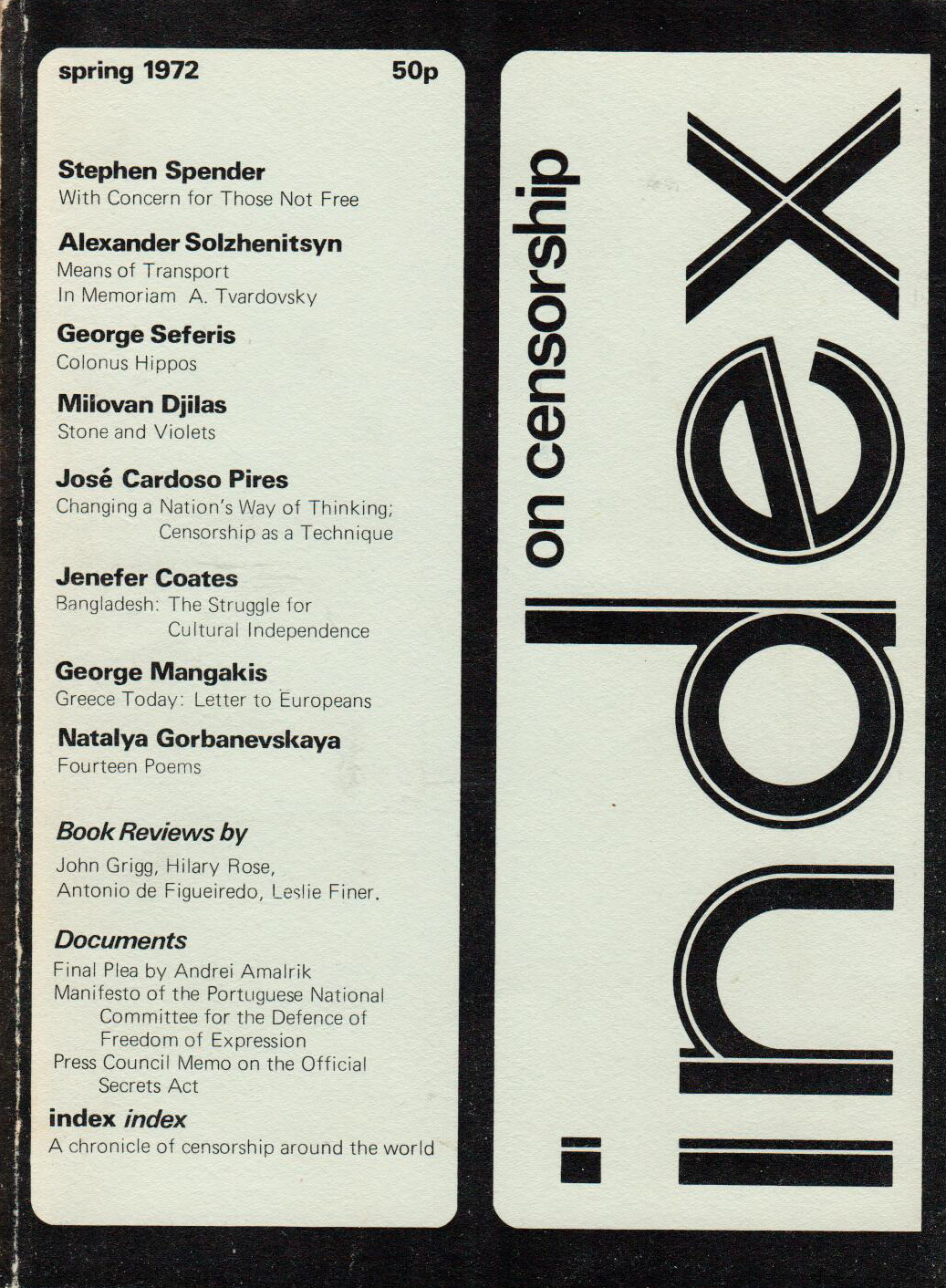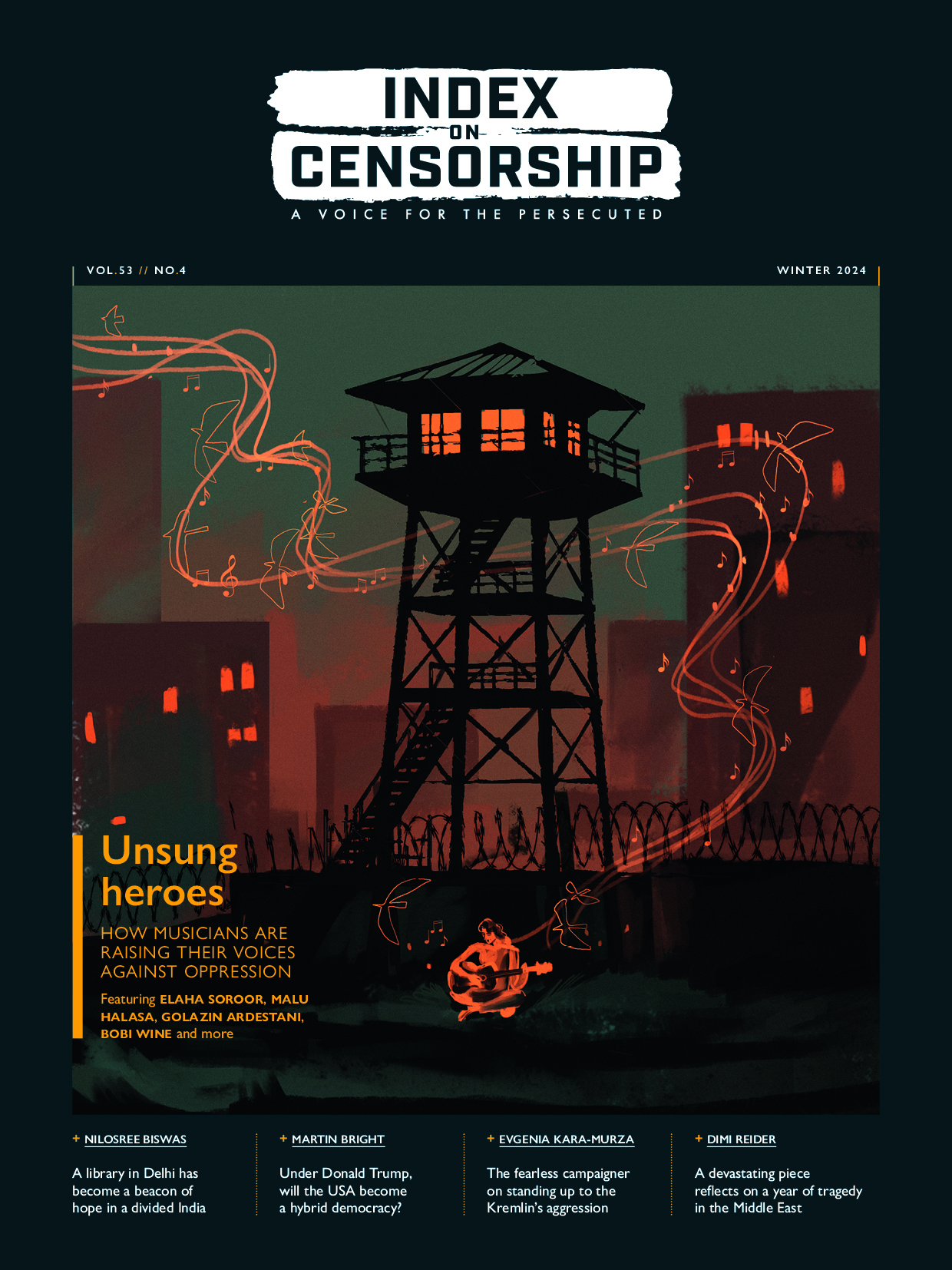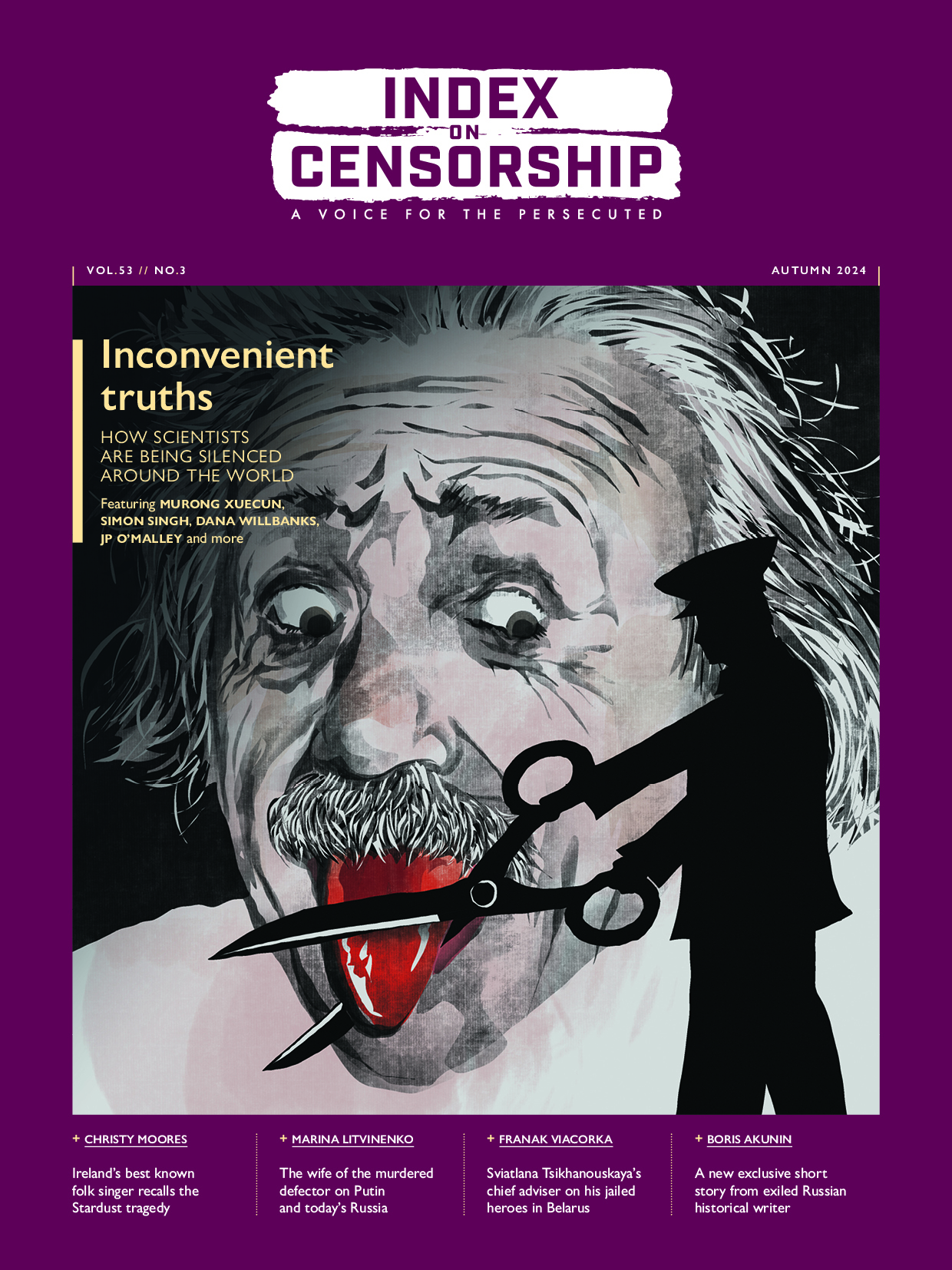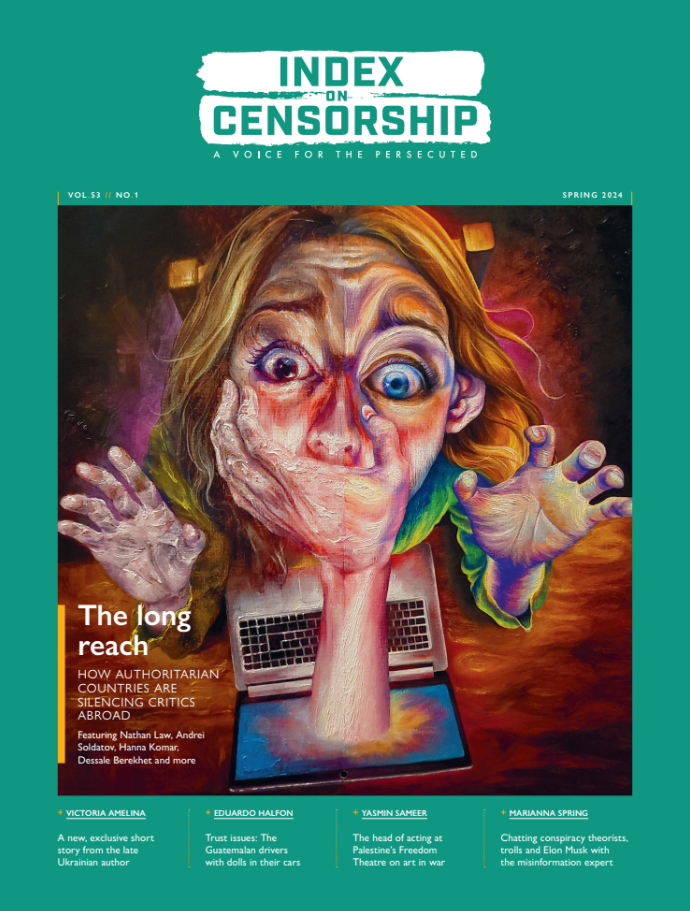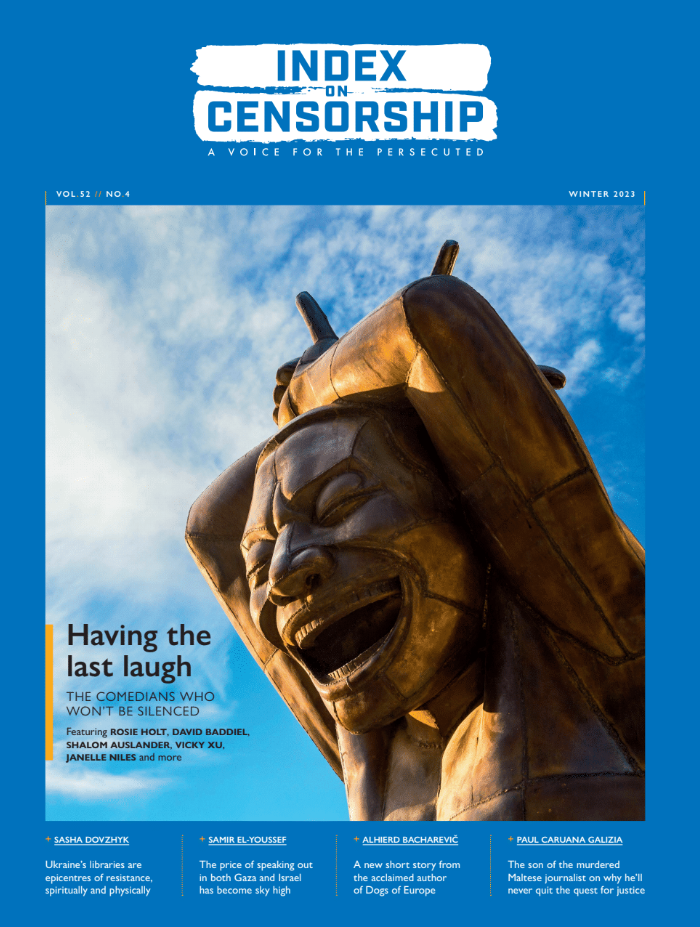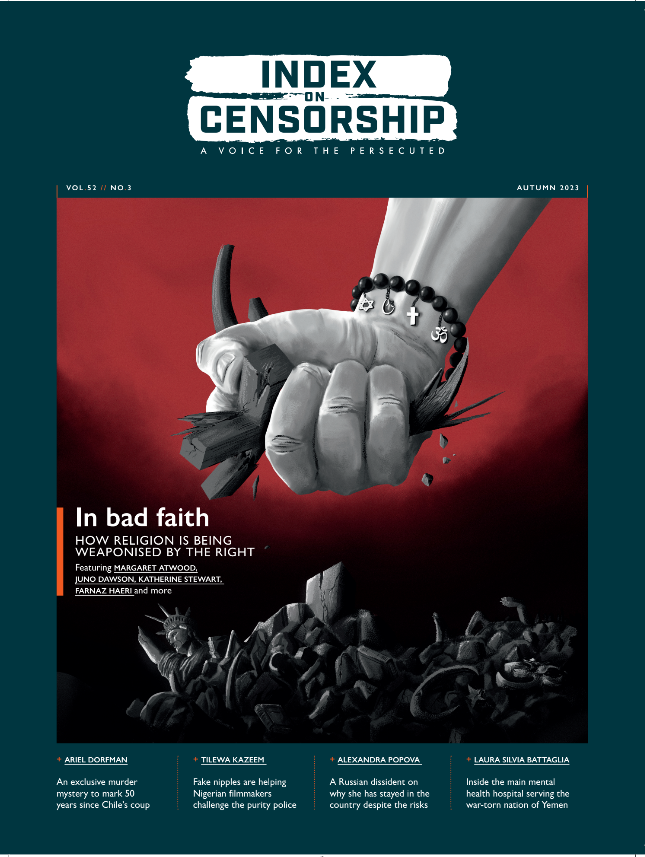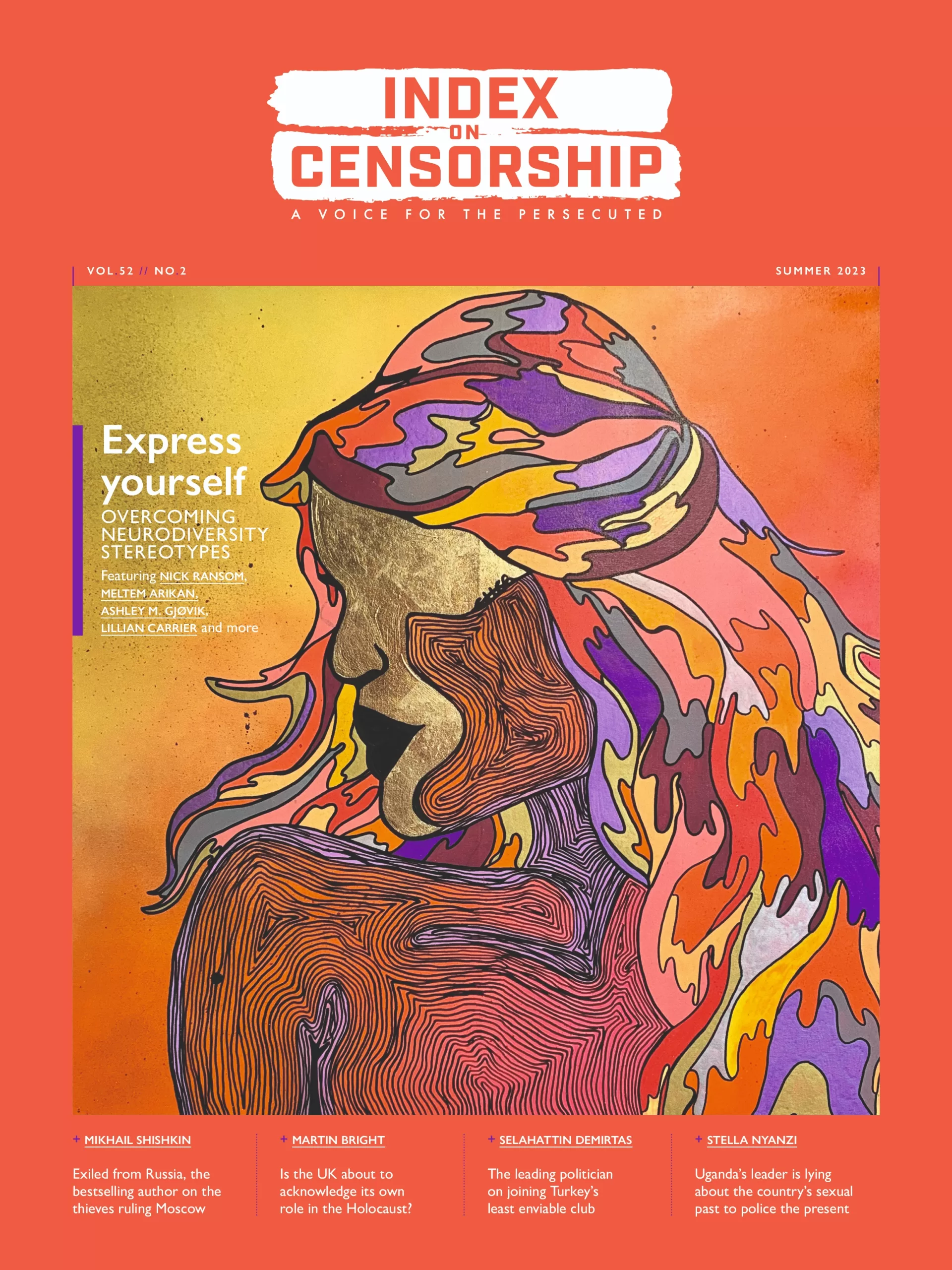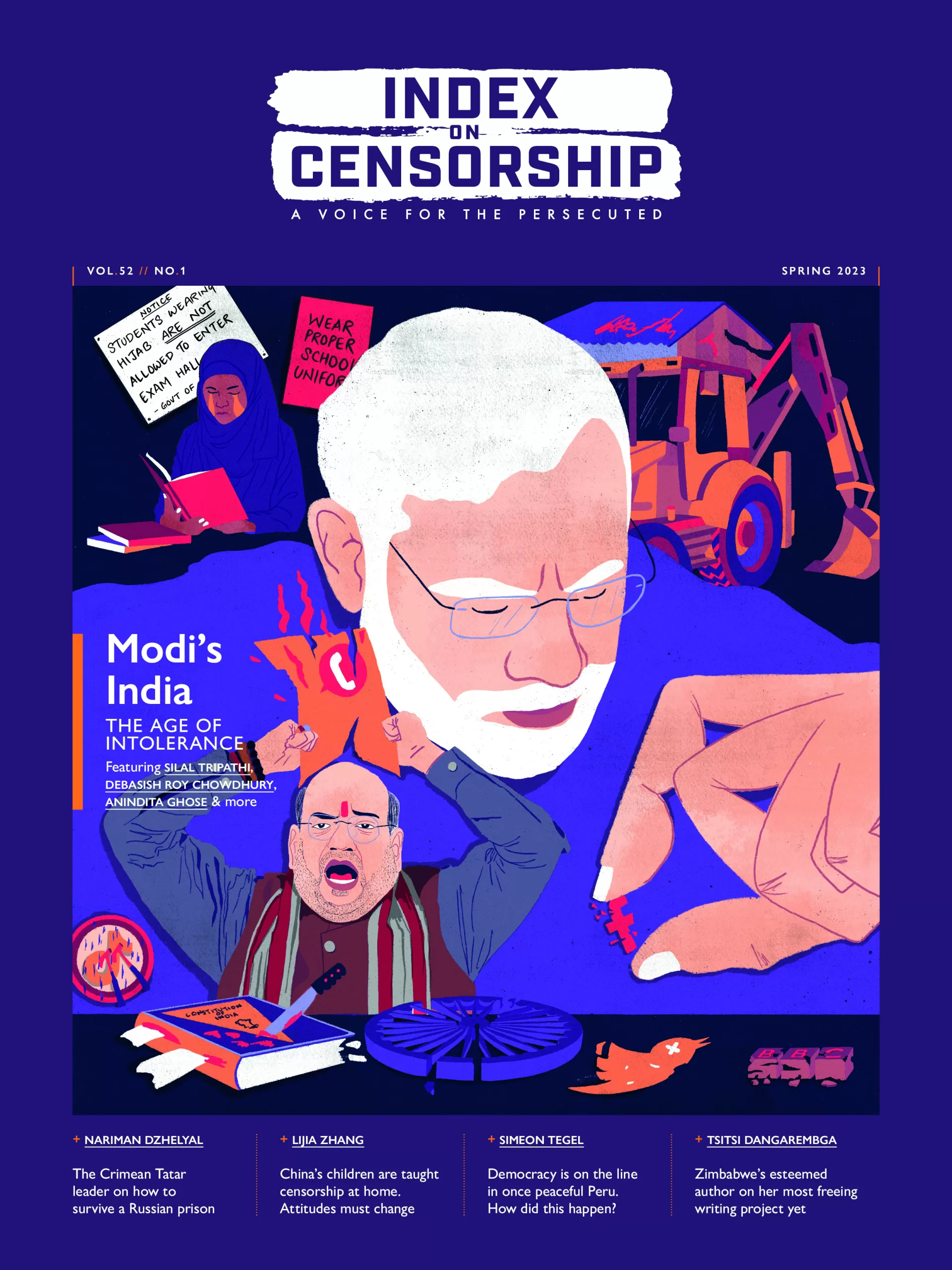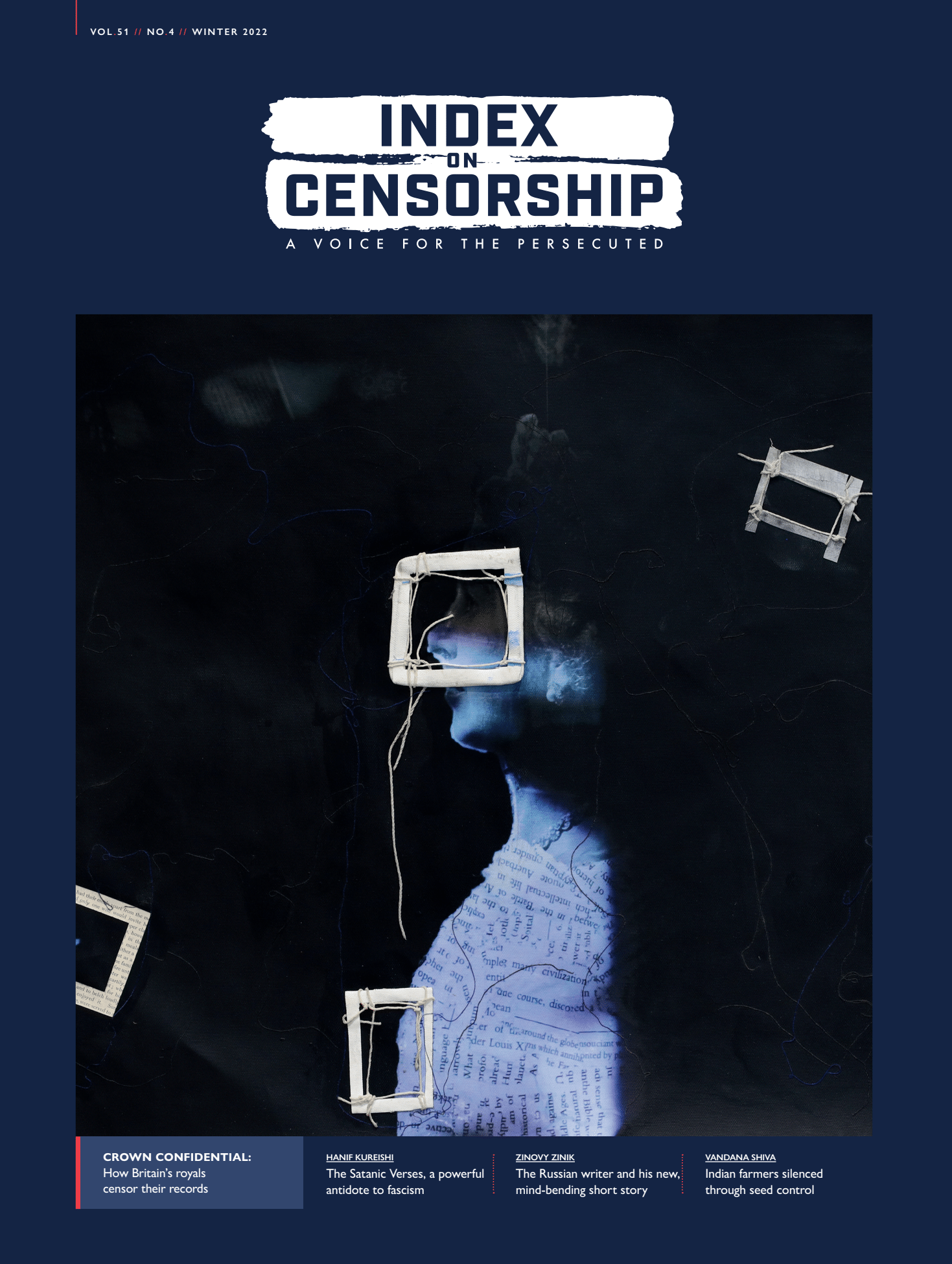[vc_row][vc_column][vc_custom_heading text=”This article appear in the first issue of Index on Censorship magazine in 1972.”][vc_column_text]
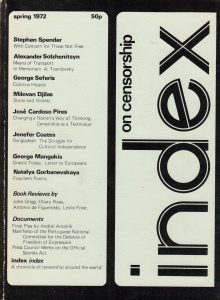
With concern for those not free, the Spring 1972 issue of Index on Censorship magazine
Introduction
Writers & Scholars International is an organization formed by a group of writers, scholars, artists and intellectuals in response to appeals from colleagues in various parts of the world. These appeals bear witness to one of the most persistent problems of the present moment: the suppression of intellectual freedom. Our aim is to draw attention to this situation, publish the facts and promote free discussion of relevant issues.
The Scope of the Problem
All over the world censorship is being employed as an instrument of government. Writers, scholars, artists and journalists are being persecuted for expressing opinions unpopular with those in authority, and innumerable restrictions are placed on the free exchange of works of the imagination and on the exchange of information. Instances of the use of such restrictions are well known in, for example, Portugal, the Soviet Union, Brazil, Spain, South Africa, Greece, most of Eastern Europe, China, Indonesia, and in some of the emergent countries of Africa. Naturally this list is far from exhaustive and the situation is constantly changing. Nor can we ignore the fact that there are recurrent threats of censorship in North America, Britain, France and other western countries.
Freedom of expression is not self-perpetuating, but rather has to be maintained through the constant vigilance of those who care about it. Suppression of such freedom is plainly a matter of degree and takes different forms in different places. It may be enforced judicially or lawlessly. Legal measures, such as subversion acts, sedition acts, suppression of communism acts, can all be deployed to restrict the freedom of the artist to depict experience as he sees it, and to suppress comment or information unwelcome to the authorities. Alternatively, existing laws may be cynically ignored, or overruled on the whim of a country’s political leaders.[/vc_column_text][/vc_column][/vc_row][vc_row][vc_column width=”1/4″][vc_icon icon_fontawesome=”fa fa-times” color=”black” background_style=”rounded” size=”xl” align=”right”][/vc_column][vc_column width=”3/4″][vc_column_text]
Freedom of expression is not self-perpetuating, but rather has to be maintained through the constant vigilance of those who care about it
[/vc_column_text][/vc_column][/vc_row][vc_row][vc_column][vc_column_text]
Writers, scholars and artists, by the nature of their professions, are most obviously affected by restrictions and threats which prevent them from expressing the truth as they see it and from exchanging ideas. Such suppression does not always consist in preventing the author from publishing what he wishes to write, the scholar from freely teaching students or from holding free discussion with other scholars. It may, and often does, also mean physical ill-treatment and forcible restriction. In addition to those cases of imprisonment, torture and judicial murder which become well known and are reported, there are very many cases of great suffering caused by lesser, but continuously applied forms of persecution and by the pervasive atmosphere of fear. The lesser ways in which individuals can be restricted range from banning their works and placing restrictions on their freedom of movement, or on their freedom to have a passport, to dismissal from their posts, and to their being assigned to the most inappropriate and unskilled jobs in their society. Such acts of more or less petty harassment usually go unreported; yet, the cumulative burden of suffering that they impose is very great, and such measures might be described as the coarse diet on which tyranny thrives.
General Conclusions
It is clear that the suppression of ideas and the harassment of those who wish to express themselves freely results in a loss for us all and for trivialisation. As John Stuart Mill wrote, it is on freedom of opinion, and freedom of expression of opinion, that the well-being of mankind depends. The means for disseminating information and ideas have reached a degree of efficiency never before attained. It might seem that we were moving towards a state of affairs in which there could be an international exchange of ideas within a world community of intellect and imagination. It is therefore paradoxical that attempts to nullify the artist’s vision and to thwart the communication of ideas, appear to increase proportionately with the most improvement in the media of communication.
Plan of Action
Writers & Scholars International has been founded to make people more continuously aware of the suppression of freedom of expression, wherever it occurs. It has been formed by a group of individuals who have no political, or ideological, axe to grind. They are not concerned with drawing attention to the lack of freedom in one part of the world in order to paint an exaggerated picture of the freedoms supposedly enjoyed in another. Rather they want to keep the facts continuously in view. On a more personal level, they are, as marking the conditions in which these colleagues live and work known. The purpose of the organisation is to collect, publish and disseminate information which draws attention to the discrepancy between actual conditions in respect of freedom of expression and to aims set forth in the Universal Declaration of Human Rights.
- It will promote by various means the study of constitutions, laws and regulations relating to freedom of expression and publication and will encourage inquiry into censorship as a psychological and philosophical phenomenon.
- It will publish a regular journal, INDEX, informing the public of the activities of Writers & Scholars International in furtherance of its aims. It will also record and analyse all inroads into freedom of expression and examine the censorship situation in individual countries and in relation to various constitutions and legal codes. Examples of censored material (poetry, prose, articles), as well as the results of its findings, will be published in the journal.
- It will assist in the publication of books, pamphlets, articles, etc. that would not other-wise be available to the public because of censorship and other restrictions in their countries of origin.
- It will provide information to the communications media concerning infringements of the laws relating to freedom of expression and on censorship trends in various parts of the world.
- It will keep the public informed about the plight of writers, artists, scholars and intellectuals subjected to censorship, and will keep their names before the pubic,
- It will cooperate with other organisations with related interests insofar as they wish.
[/vc_column_text][/vc_column][/vc_row][vc_row equal_height=”yes” el_class=”text_white” css=”.vc_custom_1518792984613{background-color: #455560 !important;}”][vc_column width=”1/2″ css=”.vc_custom_1518793005151{background: #455560 url(https://www.indexoncensorship.org/wp-content/uploads/2012/01/magazine-banner2.png?id=80745) !important;background-position: center !important;background-repeat: no-repeat !important;background-size: contain !important;}”][/vc_column][vc_column width=”1/2″ css=”.vc_custom_1518792682986{background-color: #455560 !important;}”][vc_custom_heading text=”SUBSCRIBE TO INDEX ON CENSORSHIP MAGAZINE” font_container=”tag:p|font_size:24|text_align:left” use_theme_fonts=”yes” link=”url:https%3A%2F%2Fwww.indexoncensorship.org%2Fsubscribe%2F|||”][vc_column_text]Every subscription helps Index’s work around the world
![]() SUBSCRIBE[/vc_column_text][/vc_column][/vc_row]
SUBSCRIBE[/vc_column_text][/vc_column][/vc_row]

